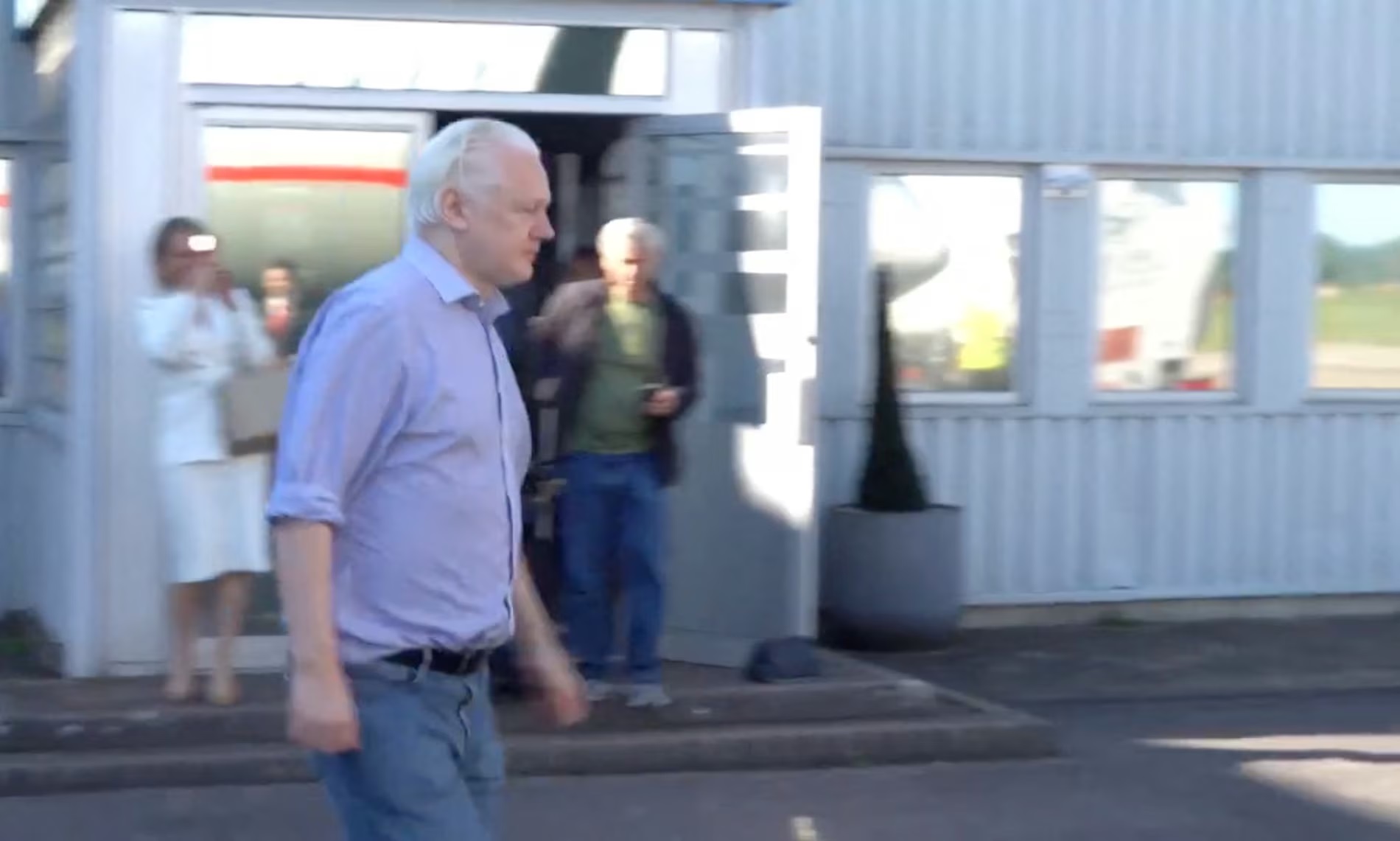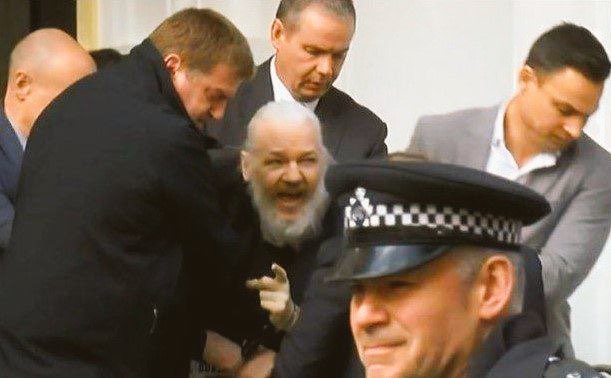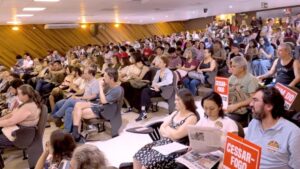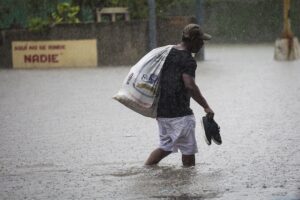
Published 06/25/2024 09:45 | Edited 06/25/2024 09:59
The brother of Wikileaks founder Julian Assange thanked authorities who spoke out in support of the journalist, including President Lula. Gabriel Shipton told British broadcaster Sky News that personalities such as Pope Francis and the Brazilian president were decisive in Assange’s release.
“I have been working in Washington, at conferences advocating for Julian’s release, for the last three or four years. Winning Julian Assange’s freedom has been a global effort, and it’s to everyone’s credit,” thanked Shipton.
“From the Pope, who defended Julian, President Lula, of Brazil, the Australian Prime Minister, everyone was part of this global effort,” said Assange’s brother.
The journalist is expected to plead guilty this Wednesday (26), in a court in the Northern Mariana Islands, to violating US espionage law, in a deal that will end his imprisonment in the UK and allow him to end his odyssey and return to home in Australia.
The founder of Wikileaks is on his way to the Mariana archipelago, an American territory located in the Pacific Ocean, much closer to Oceania than North America.
Under the agreement, in an American court on the island of Saipan, he will plead guilty to conspiracy to obtain and disseminate US national defense information.
Julian Assange arrives in Bangkok as the publisher faces court hearing on US territory Wednesday morning #AssangeJet https://t.co/oituo5Byvq
— Defend Assange Campaign (@DefendAssange) June 25, 2024
Assange is serving a 62-month sentence, equivalent to the time he already served in Belmarsh Prison, in the United Kingdom, while fighting extradition to the United States. He is expected to be released and return to his native Australia after this week’s court proceedings unfold.
Wikileaks announced Assange’s release from Belmarsh maximum security prison, in London, at 8:50 pm this Monday (24). After the British Supreme Court’s decision for his release, on Monday morning local time, the journalist headed to Stansted airport and left the United Kingdom.
“Julian Assange is free. He left Belmarsh maximum security prison on the morning of June 24, having spent 1,901 days there. He was granted bail by the High Court in London and was released at Stanstead Airport in the afternoon, where he boarded a plane and departed the United Kingdom,” Wikileaks posted on X, formerly Twitter.
“After more than five years in a 2×3 meter cell, isolated 23 hours a day, he will soon be reunited with his wife Stella Assange and his children, who only knew their father behind bars,” he said.
Wikileaks and the defense of human rights and national sovereignty
Assange became a symbol of the fight for press freedom when he was persecuted and condemned by the United States for revealing hundreds of thousands of documents that exposed attacks by the American army on civilians in Iraq and Afghanistan.
In 2006, the journalist created Wikileaks, a system for “delivering dead letters” on the internet to potential sources. But it was in April 2010 that the site gained prominence when it published a video showing a US helicopter, in 2007, killing a dozen people in the Iraqi capital, Baghdad, including two Reuters journalists.
In 2010, Wikileaks released more than 90,000 secret US military documents about the war in Afghanistan and around another 400,000 documents about the Iraq war, in the largest security breach in American military history.
In 2011, the organization revealed over 250,000 secret diplomatic cables from American embassies around the world, which were published by newspapers such as The New York Times and the The Guardian.
In one of the leaks, Wikileaks revealed that the then president of the Republic of Brazil, Dilma Rousseff (PT), was wiretapped by the National Security Agency (NSA). In addition to the president herself, 29 other government phones were spied on by the intelligence agency.
The start of the chase
The leaks angered politicians and military personnel in the United States and other parts of the world, who began to claim that the publications put lives at risk.
Assange was accused of sexual crimes in a Swedish court, which ordered his arrest in 2010. The Australian denied the allegations and said it was a pretext to extradite him to the US to face charges over the Wilileaks publications.
In June 2012, shortly after the UK High Court rejected the last appeal against exterdition to Sweden, Assange entered the Ecuadorian embassy in London to ask for political asylum.
In 2019, with the change of government in Ecuador, Assange was forced to leave the embassy in London and ended up being arrested inside the building by British police.
Assange was sentenced to 50 weeks in prison for violating the conditions set by the court when granting bail for him to respond to accusations of sexual abuse. The charges were eventually dropped.
Still in 2019, the United Kingdom received a request from the United States for Assange to be extradited. The objective would be to have him respond on North American soil to 18 charges of conspiracy, cyber crimes and violation of espionage laws.

After the end of the 50-week prison sentence imposed for the case in Sweden, the WikiLeaks founder remained detained in Belmarsh maximum security prison, where he awaited extradition hearings.
Support from Lula and the international community
During Assange’s judicial odyssey, the support of authorities and personalities was fundamental for the defense of the journalist, human rights, press freedom and national sovereignty.
President Lula was one of the most assiduous defenders of the journalist throughout this time. In May, faced with the possibility of Assange’s extradition, the Brazilian president asked for his release.
“Julian Assange, the journalist who should have won the Pulitzer Prize for revealing secrets of the powerful, has instead been imprisoned for 5 years in England, condemned to the silence of the entire press that should be defending his freedom as part of the fight for freedom of expression. I hope that the persecution against Assange ends and he returns to the freedom he deserves as soon as possible”, he posted on Twitter.
LULA ON HER
President Lula speaks about press freedom and Julian Assange at the UN General Assembly. pic.twitter.com/byb2ulQ8Z6
— Helder Salomão (@heldersalomao) September 19, 2023
In September 2019, during his speech at the opening of the 78th United Nations Assembly, in New York, United States, Lula reiterated his support for the Australian, stating that he “cannot be punished for informing society in a transparent and legitimate way”.
“It is essential to preserve press freedom. A journalist, like Julian Assange, cannot be punished for informing society in a transparent and legitimate way”, declared the Brazilian.
Source: vermelho.org.br

